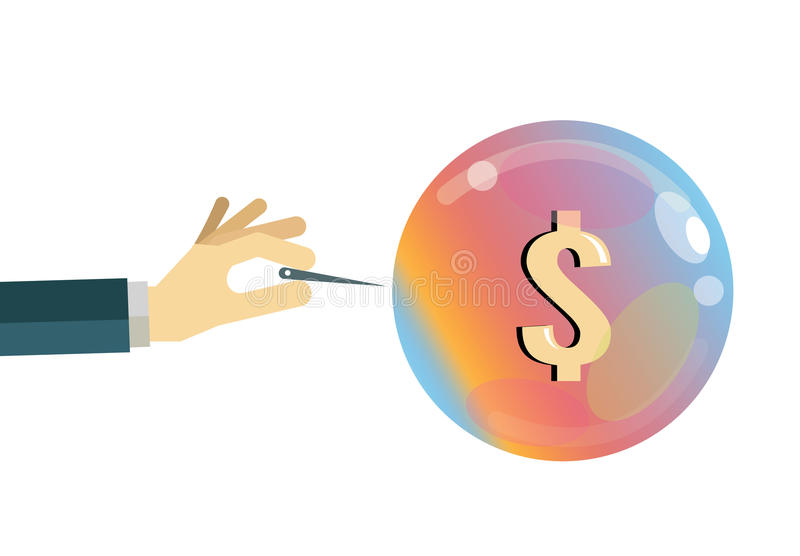
Stocks that have a strong track record of paying out dividends are the best dividend-paying stocks. These companies distribute a proportion of their earnings, which makes each share of stock equivalent to money you would receive in your bank account. Some companies do not pay dividends as soon as they start, so make sure to find companies with a track record of paying dividends. In general, dividend-paying stocks are from industries that have been around for a long time, such as banking, utilities, oil and gas, and real estate.
Coca-Cola
If you're looking for a high-quality dividend stock, consider Coca-Cola. Coca-Cola, a well-respected company, has been increasing its dividend over the past 25 years. The dividend is covered by profits and cash flow, so there's plenty of safety margin before it's cut. Its dividend yield also exceeds the average. Coca-Cola is a blue-chip stock that offers high dividend yields and long-term growth prospects.
Coca-Cola has been increasing its dividend payments over the past decades, despite recent market declines. The latest increase was 4.8%. This represents the highest rate of growth since 2008. This increase exceeded the dividend per-share CAGR of 4.8% for the last eight years. Coca-Cola has added a new business in its portfolio to improve its position for the future, despite stagnant net income over ten years.

Emerson Electric
If you're looking for a dividend stock, consider Emerson Electric. This company offers a great dividend option with a yield of between 8 and 11% over the next 15 year. It pays dividends on a quarterly basis, but the timing of the payments can be a bit unpredictable. A good dividend yield can be expected if you are patient and wait until the company reports better results.
While dividend growth has slowed over the past few years, Emerson has managed to maintain its record of growth. The average increase in EPS has been 3.60% since 2000. It is expected to reach $2.41 by 2010 and $2.90 by 2011. Although the company is resilient to economic downturns it can be affected by slowdowns in its five major segments. Despite recent earnings being strong, the company is still facing some challenges, such as a recession.
Verizon Communications
Verizon Communications Inc ranks among the highest dividend paying stocks. The company has an annual dividend rate of 5.1% and is one of the top competitors of AT&T. However, investors should be aware that it will take years before the company will start generating substantial revenue from its 5G wireless apps. In the meantime, investors may want to consider investing in large ETFs that track the S&P 500.
Verizon Communications has raised its dividend for 17 consecutive years. With a growing business and a stable dividend growth, Verizon is a great investment. It isn't the most widely traded stock, but it is one the highest dividend-paying stocks. It has a high growth rate, making it a great stock for retirement portfolios. It's a solid investment choice for investors. It is also one the most safest dividend stocks.

Chevron
Chevron dividend paying stocks could be an investment option for someone who is new to the stock markets. This American multinational energy corporation, which is the successor to Standard Oil, is active in more 180 countries. The company's main headquarters is in San Ramon in California but it has operations in over 180 countries. If you are considering investing in this company, you should read on to discover more about its history and dividend payouts. This article will give you more information on Chevron and the reasons why you should invest in it.
Chevron, although not as widely held as ExxonMobil's, is still better-positioned than ExxonMobil. Chevron dividend stocks are more expensive, so investors might pay more. But as long the company does not lose its way, they should continue to pay dividends. They have a premium price because of that. You may be willing to pay more if you are a conservative investor.
FAQ
What is security in the stock exchange?
Security is an asset that generates income. Shares in companies is the most common form of security.
A company may issue different types of securities such as bonds, preferred stocks, and common stocks.
The earnings per shared (EPS) as well dividends paid determine the value of the share.
Shares are a way to own a portion of the business and claim future profits. You will receive money from the business if it pays dividends.
Your shares can be sold at any time.
Why is a stock called security.
Security is an investment instrument whose value depends on another company. It could be issued by a corporation, government, or other entity (e.g. prefer stocks). If the asset's value falls, the issuer will pay shareholders dividends, repay creditors' debts, or return capital.
What is the distinction between marketable and not-marketable securities
The key differences between the two are that non-marketable security have lower liquidity, lower trading volumes and higher transaction fees. Marketable securities, on the other hand, are traded on exchanges and therefore have greater liquidity and trading volume. They also offer better price discovery mechanisms as they trade at all times. This rule is not perfect. There are however many exceptions. For example, some mutual funds are only open to institutional investors and therefore do not trade on public markets.
Non-marketable security tend to be more risky then marketable. They have lower yields and need higher initial capital deposits. Marketable securities are usually safer and more manageable than non-marketable securities.
A bond issued by large corporations has a higher likelihood of being repaid than one issued by small businesses. The reason is that the former is likely to have a strong balance sheet while the latter may not.
Marketable securities are preferred by investment companies because they offer higher portfolio returns.
What is a fund mutual?
Mutual funds are pools of money invested in securities. They allow diversification to ensure that all types are represented in the pool. This reduces risk.
Professional managers are responsible for managing mutual funds. They also make sure that the fund's investments are made correctly. Some funds offer investors the ability to manage their own portfolios.
Because they are less complicated and more risky, mutual funds are preferred to individual stocks.
Statistics
- For instance, an individual or entity that owns 100,000 shares of a company with one million outstanding shares would have a 10% ownership stake. (investopedia.com)
- The S&P 500 has grown about 10.5% per year since its establishment in the 1920s. (investopedia.com)
- Ratchet down that 10% if you don't yet have a healthy emergency fund and 10% to 15% of your income funneled into a retirement savings account. (nerdwallet.com)
- Individuals with very limited financial experience are either terrified by horror stories of average investors losing 50% of their portfolio value or are beguiled by "hot tips" that bear the promise of huge rewards but seldom pay off. (investopedia.com)
External Links
How To
How to open a Trading Account
First, open a brokerage account. There are many brokers out there, and they all offer different services. Some have fees, others do not. Etrade, TD Ameritrade Fidelity Schwab Scottrade Interactive Brokers are some of the most popular brokerages.
Once you have opened your account, it is time to decide what type of account you want. You can choose from these options:
-
Individual Retirement accounts (IRAs)
-
Roth Individual Retirement Accounts
-
401(k)s
-
403(b)s
-
SIMPLE IRAs
-
SEP IRAs
-
SIMPLE SIMPLE401(k)s
Each option has its own benefits. IRA accounts have tax advantages but require more paperwork than other options. Roth IRAs permit investors to deduct contributions out of their taxable income. However these funds cannot be used for withdrawals. SIMPLE IRAs have SEP IRAs. However, they can also be funded by employer matching dollars. SIMPLE IRAs require very little effort to set up. They enable employees to contribute before taxes and allow employers to match their contributions.
Finally, determine how much capital you would like to invest. This is known as your initial deposit. Most brokers will give you a range of deposits based on your desired return. Depending on the rate of return you desire, you might be offered $5,000 to $10,000. The conservative end of the range is more risky, while the riskier end is more prudent.
You must decide what type of account to open. Next, you must decide how much money you wish to invest. Each broker will require you to invest minimum amounts. The minimum amounts you must invest vary among brokers. Make sure to check with each broker.
You must decide what type of account you want and how much you want to invest. Next, you need to select a broker. You should look at the following factors before selecting a broker:
-
Fees: Make sure your fees are clear and fair. Many brokers will offer trades for free or rebates in order to hide their fees. However, some brokers actually increase their fees after you make your first trade. Don't fall for brokers that try to make you pay more fees.
-
Customer service - Find customer service representatives who have a good knowledge of their products and are able to quickly answer any questions.
-
Security - Select a broker with multi-signature technology for two-factor authentication.
-
Mobile apps - Find out if your broker offers mobile apps to allow you to view your portfolio anywhere, anytime from your smartphone.
-
Social media presence – Find out if your broker is active on social media. If they don’t have one, it could be time to move.
-
Technology - Does it use cutting-edge technology Is it easy to use the trading platform? Are there any issues with the system?
After choosing a broker you will need to sign up for an Account. Some brokers offer free trials, while others charge a small fee to get started. After signing up, you'll need to confirm your email address, phone number, and password. Next, you will be asked for personal information like your name, birth date, and social security number. Finally, you will need to prove that you are who you say they are.
Once you're verified, you'll begin receiving emails from your new brokerage firm. It's important to read these emails carefully because they contain important information about your account. This will include information such as which assets can be bought and sold, what types of transactions are available and the associated fees. You should also keep track of any special promotions sent out by your broker. These could include referral bonuses, contests, or even free trades!
Next, open an online account. An online account is typically opened via a third-party site like TradeStation and Interactive Brokers. Both websites are great resources for beginners. To open an account, you will typically need to give your full name and address. You may also need to include your phone number, email address, and telephone number. Once this information is submitted, you'll receive an activation code. This code is used to log into your account and complete this process.
Now that you have an account, you can begin investing.